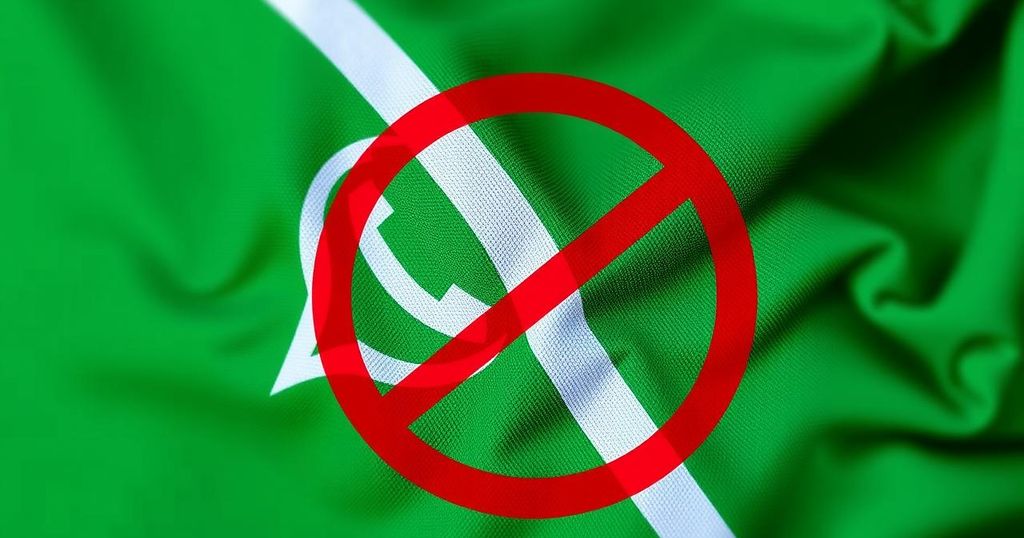Equatorial Guinea Imposes WhatsApp Ban Amid Sex Tape Scandal

Equatorial Guinea has prohibited citizens from downloading multimedia files on WhatsApp due to a scandal involving explicit videos of a senior official, Baltasar Ebang Engonga. The government is attempting to control the spread of this embarrassing content after it circulated widely on social media. Vice President Teodoro Nguema Obiang Mangue emphasized the need to safeguard family integrity, while numerous government officials face disciplinary actions related to the scandal. The situation raises broader concerns regarding governance and ethics within the Central African nation.
Equatorial Guinea has enacted a ban on its citizens from downloading and sharing multimedia files via WhatsApp, in light of a significant scandal implicating a senior government official. This decision follows the circulation of explicit video content featuring Baltasar Ebang Engonga, the Director of the National Financial Investigation Agency, and various women, including family members of other officials. The government aims to mitigate the spread of these embarrassing materials by controlling telecommunications services and restricting mobile data use. Vice President Teodoro Nguema Obiang Mangue has conveyed his concerns about the destruction of families due to this scandal, indicating that drastic measures were necessary to uphold public morality and ethics. The videos surfaced after being disseminated through WhatsApp, leading to extensive embarrassment for the ruling family, given the illicit behavior captured. Engonga, who has familial connections to prominent positions in government, reportedly filmed over 400 explicit videos in multiple locations. Despite the government’s efforts, speculation remains regarding further potential video releases involving other prominent figures, prompting additional precautions to control the distribution of such content.
The situation in Equatorial Guinea revolves around a sex tape scandal that has captured significant attention both domestically and internationally, primarily because of the involvement of high-ranking officials and their social networks. The dissemination of the explicit materials through social media platforms has raised serious concerns regarding privacy, morality, and public image. The government’s response, which includes bans on WhatsApp downloads and a push for enhanced telecommunications regulations, signifies a broader attempt to control content that is deemed socially inappropriate while also maintaining a semblance of authority in the wake of public scandal. Historically, Equatorial Guinea has faced challenges with governance and transparency, and this incident adds another layer of complexity to its political landscape. The fact that the implicated official holds connections to influential family members within the regime intensifies the scrutiny of the government’s actions and the measures they are willing to implement to quash public dissent or criticism stemming from the release of the tapes.
In conclusion, the ban on multimedia downloads through WhatsApp by Equatorial Guinea’s government is a significant response to a scandal involving explicit content linked to high-ranking officials, particularly Baltasar Ebang Engonga. The measures taken reflect the government’s urgency to restore public order and manage the fallout from actions that raised questions about ethics and propriety. While these actions may provide temporary relief from the circulation of embarrassing materials, the effectiveness of such a ban in a digitally connected society remains questionable. The measures taken serve as a stark reminder of the intersection between public duty and personal behavior among government officials.
Original Source: technext24.com







